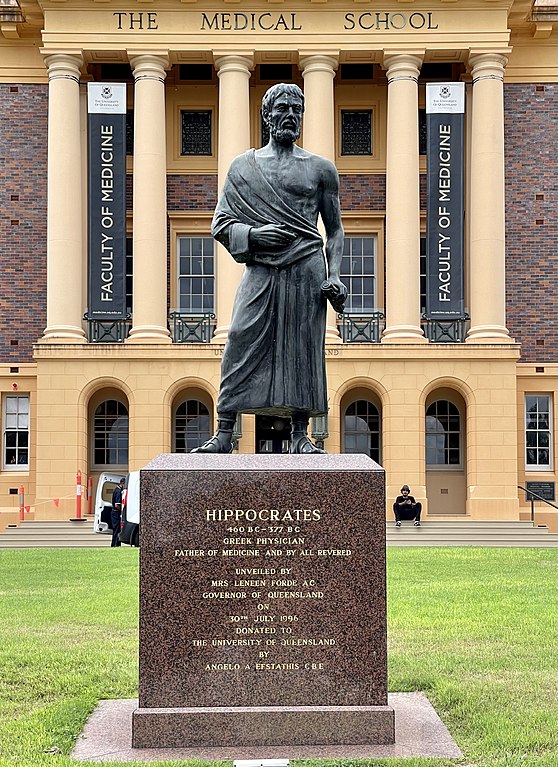
The Hippocratic Oath is an ethical code attributed to the ancient Greek physician Hippocrates. It emphasizes the importance of ethical and professional conduct and obligations of doctor. The Hippocratic Oath has served as a foundational document for establishing ethical standards in medicine. It has set the precedent for physicians to uphold specific ethical principles and codes of conduct.
The Oath emphasizes the importance of putting the well-being of patients first. It has influenced the practice of medicine by promoting patient-centered care. A central theme with its tenants is “primum non nocere” or “Do No Harm.”
Most students in my class have heard about this oath, usually from watching medical dramas, like ‘Gray’s Anatomy.” You can search for the oath and find many variations. Some have the original language rephrased in more modern terms. I use a version of the oath with my anatomy students to introduce them to the concept of bioethics or medical ethics.
 A High School Lesson on the Oath
A High School Lesson on the Oath
In this activity, students read the oath and then rewrite it in terms that could be understood by a fifth grader. The language in the oath is somewhat difficult to comprehend. Students work in groups to work out what it means and rephrase it in simpler terms.
For example:
| Hippocratic Oath Statement | Student Rephrasing |
| “I will not be ashamed to say “I know not”, nor will I fail to call in my colleagues when the skills of another are needed for a patient’s recovery. | Don’t be afraid to admit you don’t know something and ask for help. |
In the next section of the activity, students explore criticisms of the oath. Mainly, that it doesn’t cover all of the ethics associated with medicine. They work in groups to make suggestions or additions to the oath.
Finally, they consider other professions. Should teachers have a similar oath and what would that oath look like? Most of my students suggest that a teacher’s oath should include treating all students fairly and equally. (Considering how many of my students suggest this, I wonder if they collectively experience or feel like they have been treated unfairly by a teacher.)
If you wanted to explore ethics further, you can discuss ethical perspectives. Basically, the idea that when you are making a decision about right and wrong, there are principles that guide a person’s choice: moral rules, virtues, outcomes, and principles.

